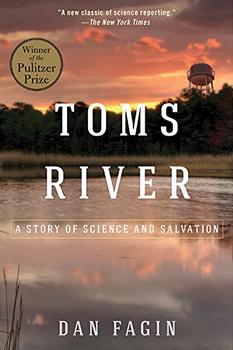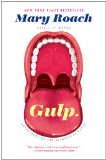Summary | Excerpt | Reviews | Beyond the book | Read-Alikes | Genres & Themes | Author Bio

A Novel
by Edward O. WilsonThe field of "ecocriticism" has become trendy in college English Departments across the country, but Anthill is the first time in popular culture that ecocriticism has been placed in the hands of a scientist. Anthill will excite bibliophiles and bookworms with its interdisciplinary, multi-genre approach to storytelling. The concerns addressed in Anthill are timely, representing popular environmental buzzwords such as "going green," "eco-friendly," and the use of the word "green" as a verb. In this sense, E. O. Wilson has "greened" the novel, not in the form of the paperless iPad, but in the theoretical manner of an "ecowriter."
In environmental terms, Anthill cross-pollinates literature and natural science, and as with many past attempts at trying to merge the science and the humanities, the blending is sometimes lopsided and awkward. The opening and closing scenes that bookend Anthill are the stuff of cheap thrillers and do not support the text's inner beauty, but new readers should not be deterred by Wilson's clumsy unraveling and sewing up of the narrative, for Wilson is at his best in the middle of the novel. The novel's center is comprised of "The Anthill Chronicles," a chapter that is (rather implausibly) presented as the text of the main character's college thesis. This section walks a new line between fiction and nonfiction with more grace and presence than the rest of the novel, but this striking vignette is not powerful enough to persuade without the support of the rest of the story. The "Chronicles" chapter relies on the novel to explain its ecological value as much as the novel depends on this section to win readers over.
Many readers may not be amused at the thought of reading about ants for 378 pages, but when viewed through the curious eyes of Wilson, and with the popular desire to be earth friendly, ants begin to tell their own minuscule, communist stories that are as fascinating literally as they are metaphorically. Readers, whether ant lovers or not, will delight in Wilson's treatment of human communities and ant colonies and the subtle overlapping between the two worlds.
What makes Anthill a rare novel, and an exciting one, is the span of fiction, nonfiction, science, conservation, politics, and business. If readers have an interest in even one of these subjects, Anthill will entertain not necessarily for its flawless grasp of the subject—with the exception of entomology—but for its interesting take on the topic in relation to other subjects. Wilson pairs business with social activism, law with ecology, and storytelling with biology. Anthill is not just fanciful bedtime reading for biologists; it poses valuable, essential questions to the American public.
In a recent NPR interview with Diane Rehm, Wilson was asked why biodiversity is important to humanity. He replied:
"Because humanity is a biological species living in a biological environment. Because like all species, we are exquisitely adapted, in everything, from our behavior to our genetics to our physiology, to that particular environment in which we live. The earth is our home. The rest of life is a critical part of that home. Unless we preserve the rest of life as a sacred duty, we will be endangering ourselves by destroying the home in which we evolved and on which we depend."
Anthill may be read as a demonstration of this statement.
![]() This review was originally published in The BookBrowse Review in May 2010, and has been updated for the
April 2011 edition.
Click here to go to this issue.
This review was originally published in The BookBrowse Review in May 2010, and has been updated for the
April 2011 edition.
Click here to go to this issue.

If you liked Anthill, try these:

by Dan Fagin
Published 2015
The riveting true story of sixty years in the life of a small town ravaged by industrial pollution, Toms River melds hard-hitting investigative reporting, a fascinating scientific detective story, and an unforgettable cast of characters into a sweeping narrative.

by Mary Roach
Published 2014
The irresistible, ever-curious, and always best-selling Mary Roach returns with a new adventure to the invisible realm we carry around inside.
A book is one of the most patient of all man's inventions.
Click Here to find out who said this, as well as discovering other famous literary quotes!
Your guide toexceptional books
BookBrowse seeks out and recommends the best in contemporary fiction and nonfiction—books that not only engage and entertain but also deepen our understanding of ourselves and the world around us.